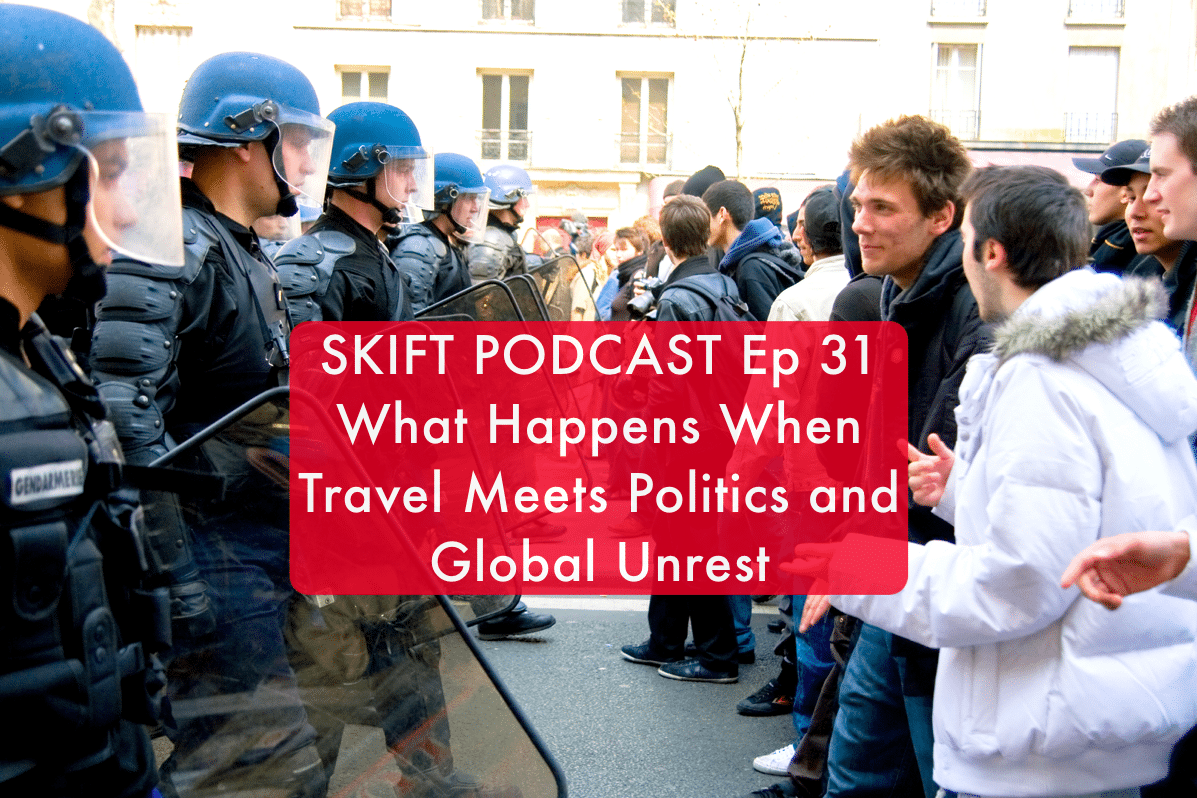Skift Take
If the U.S. wants to be competitive in the global tourism industry, it has some catching up to do.
We looked at political trends for a recent episode of the Skift Podcast, which explored the role of the U.S. government in promoting or discouraging tourism, both domestic and international.
Our guest was Roger Dow, president and CEO of the U.S. Travel Association. He sat down with Skift podcast host Hannah Sampson in New York City at the site of the NYU International Hospitality Industry Investment Conference, where he was a speaker.
Here are five takeaways from the conversation:
The “lost decade of tourism” is over and the U.S. is bouncing back.
The U.S. is now, slowly but surely, reclaiming the market share it lost in the tourism industry between 2000 and 2010.
“We were sleeping, we lost 37% of our market share. The rest of the world discovered this darling we call travel and tourism, and everybody was saying, ‘Come to China,’ ‘Come to Thailand,’ ‘Come to the Caribbean,’” explains Dow. “We were putting up all sorts of barriers to keep people away. After September 11th, we did all the things that made sense, but hurt, making it hard to get a visa if you’re from China or India or Brazil, make no new visa-waiver countries, make it harder to get through customs.”
Current infrastructure in the U.S. will soon be a problem.
As it stands, the major U.S. airports won’t be able to handle the projected increase in travelers. Security and check-in lines are too long, and we need more technology to streamline the process of moving people through.
“In 2009 we had 50 million travelers,” says Dow. “[President Obama] basically set a goal by 2021 to have 100 million travelers. Just think of it, Kennedy Airport, Miami, Chicago, O’Hare, L.A., San Francisco [have to] increase the number of visitors by 50% going through these airports.”
The U.S. doesn’t have an airport in the world’s top 25, and delaying infrastructure improvements only makes them more expensive.
“The last new airport we’ve had in America was in 1996 when Denver Airport was built. We haven’t had one new airport in the past almost 20 years,” says Dow. “If you go to China, you go to the Middle East, you go to Turkey, and you’re seeing these spectacular, world-class airports. The road system back after World War II, the 50s, the 60s, the 70s, all the airports and all that, that’s what built this economy, and we’re risking losing it.”
Political rhetoric can impact the travel industry profoundly.
Even one statement from a sitting president can change the state of tourism.
“One month into office [President Obama] made a statement that was really harmful. He said, ‘You can’t go to the Super Bowl or Las Vegas on the taxpayer’s dime.’ It was right after TARP, and all the media, all congresspeople jumped in and vilified anyone that had a meeting or were staying at a resort, and literally that one statement coupled by what followed caused the whole industry to decline,” says Dow.
Obama then made a radical 180-degree change, which caused Dow to refer to him as one of the most tourism-friendly White Houses in U.S. history.
“We need to get with [the current candidates] and really make sure that they don’t make a misstep as the new President Obama did,” says Dow. “The one thing I’m happy with, they both said that our infrastructure needs addressing.”
Before President Obama, the travel industry had never met with a sitting president, and this had a noticeable effect. Dow describes the pre-Obama era:
“The closest we came was Bill Clinton. It was a White House conference on travel and tourism, and Bill Clinton came and spoke at the luncheon, but beyond that, I’ve been in this business over 40 years, this industry has never sat with a sitting president, and this present president, President Obama, we’ve been with three times.”
The TSA needs some major improvements.
It seems everyone’s blaming each other: Congress, the TSA, the airlines, and the travelers themselves.
“People are blaming the airlines because they charge for checked bags, and so it makes people carry more bags. People are blaming the travelers because they haven’t signed up [for TSA PreCheck]. People are blaming Congress because they haven’t allocated enough money for TSA. Everyone is pointing fingers at everyone else,” says Dow.
The TSA is estimated to be 7,000 employees short of efficiency, the price of PreCheck is reportedly too high for many customers, and four to five weeks for PreCheck approval has proven too long. Dow explains that the future may include something like facial recognition, to help people pass through security quickly.
The travel industry does recover from the trauma of terrorism, sometimes quicker than expected.
Tourism to Paris and Brussels suffered after their attacks, and immediately so, but with decent security, travelers can move beyond their fear.
“When September 11th happened, the travel industry was on its knees in 45 minutes. In 45 minutes, every plane was on the ground, and the travel industry took years to recover,” recalls Dow. “Fear is something that gets fanned, and people will change their habits… It has an immediate effect where terrorism happens, but there’s also a fairly rapid recovery of people’s minds and it’s on to the next.”
The Daily Newsletter
Our daily coverage of the global travel industry. Written by editors and analysts from across Skift’s brands.
Have a confidential tip for Skift? Get in touch
Tags: politics, skift podcast, u.s. travel
